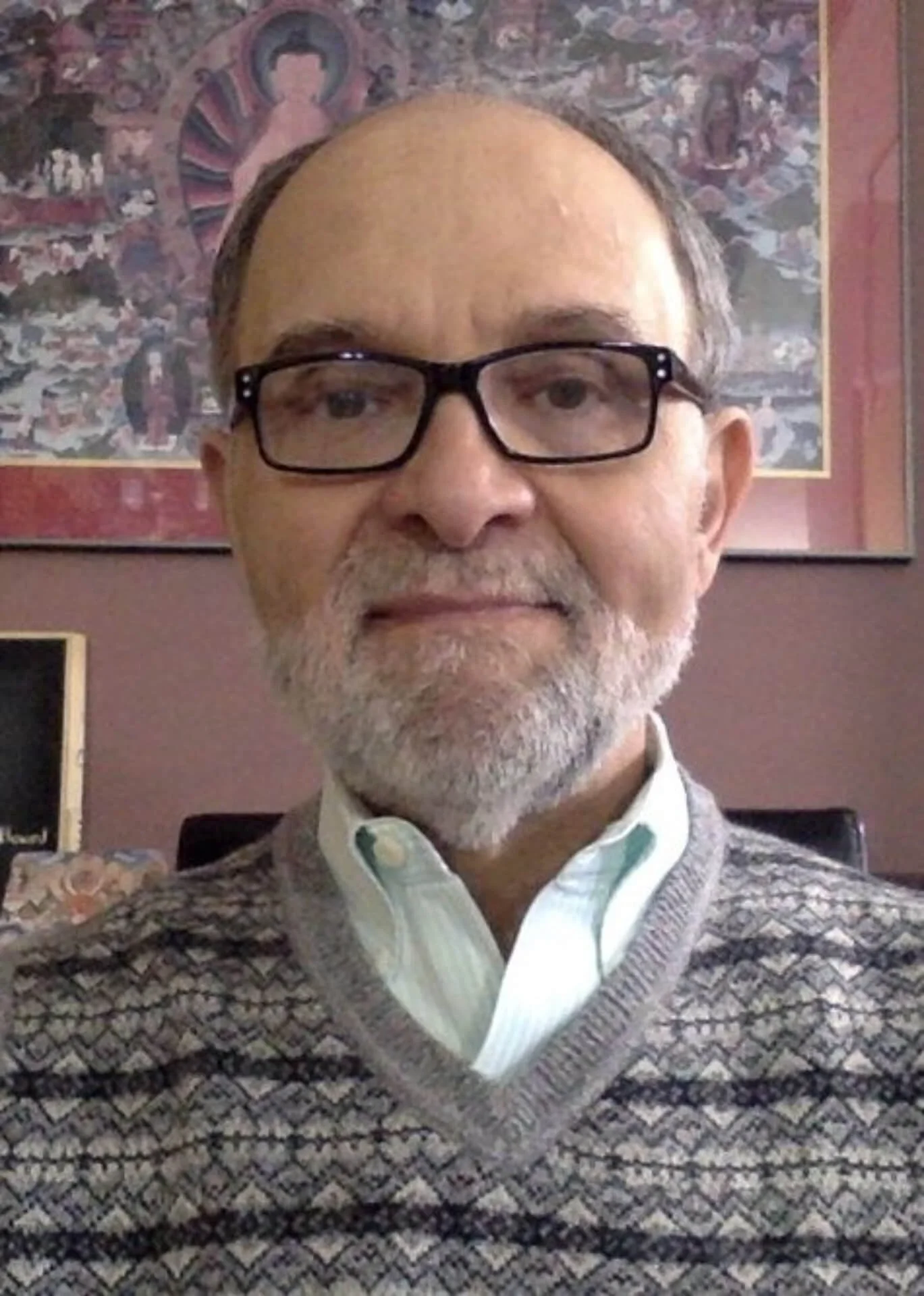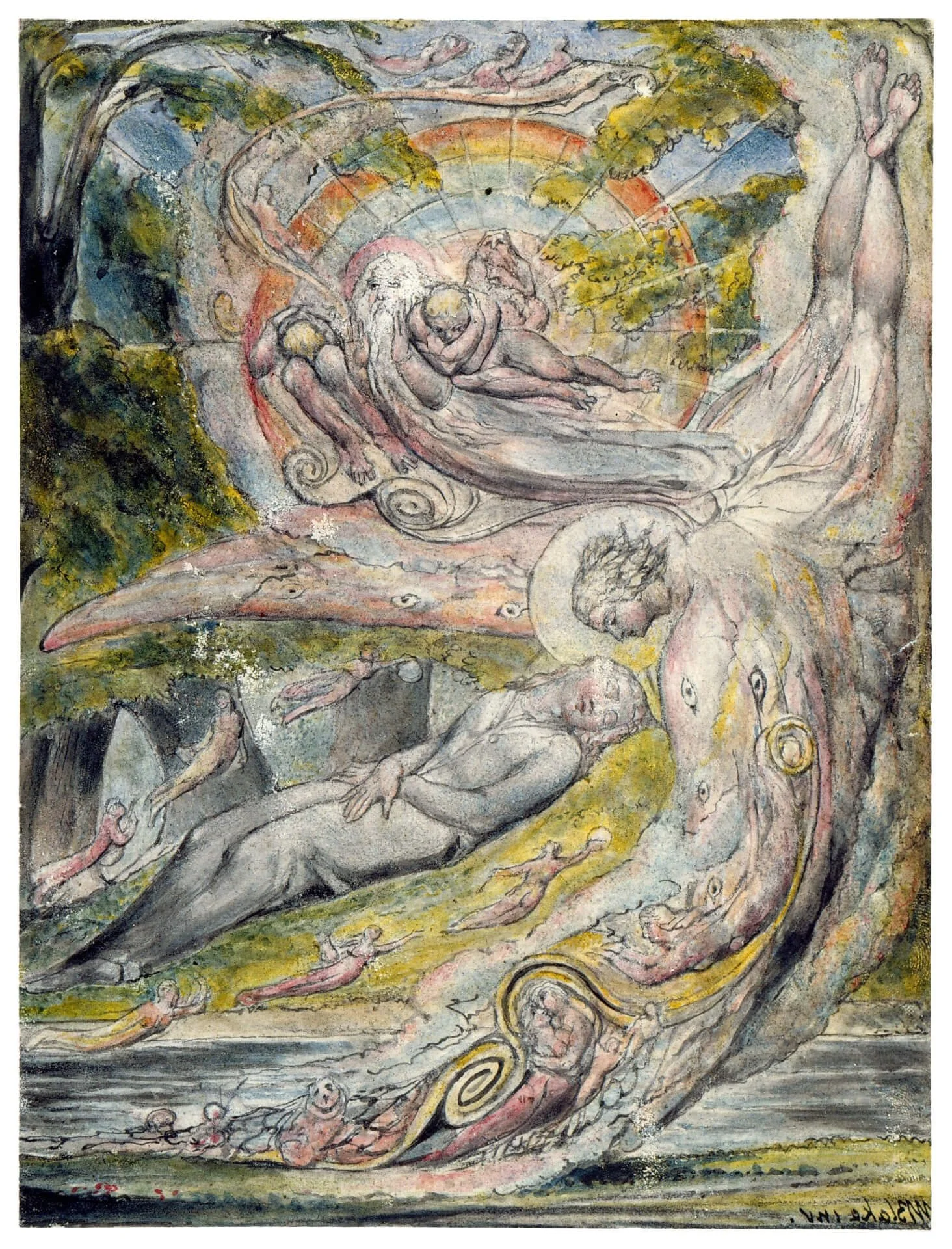Soulwork: Why Dreams Are So Important in Jungian Analysis
A Conversation with Jungian Analyst Kenneth James (Part Two)
This post continues my conversation with esteemed Jungian analyst Kenneth James. In Part One, we focused on how Jungian analysis is different from conventional therapies and other analytic traditions.
The COVID pandemic is reshaping life as we have known it on the planet. For many, the absolutes we have counted on to sustain us during times of crisis have already disappeared. That we have lost all sources of income, that our hospitals are understaffed and inadequately supplied, that we may die alone without a beloved near are the unthinkable realities we must now face. During the long weeks ahead, fear, loneliness, and despair will be uninvited visitors. As our sense of catastrophe deepens, so will our feelings of isolation. How can we cope? One way is to turn inward and pursue a relationship to our inner world. In this second conversation, Dr. Kenneth James will discuss the importance of dreams and how making the unconscious conscious is a giant step toward becoming self-enlightened.
Kenneth James is a Jungian analyst in private practice in Chicago. He holds a Ph.D. in Communicative Sciences and Disorders from Northwestern University, and a Diploma in Analytical Psychology from the C.G. Jung Institute of Chicago. Dr. James holds the rank of professor emeritus after a 33-year career as a university professor and now devotes his time as founder and director of The Soulwork Center in downtown Chicago where he practices as a Jungian analyst.
Dale Kushner: Most contemporary models of psychological counseling do not value the examination of dreams. Why do Jungians place so much value on dreamwork?
Kenneth James: The dream is considered the purest expression of unconscious dynamics, both personal and collective. Jungian work is not strictly speaking ego-based. We rely on disclosures from the unconscious to guide us in analysis and more importantly, in life outside of analysis. There are many ways that the unconscious seeks to communicate with the ego. These ways include daydreams and reverie, projection, displacement, somatization (the production of medical symptoms with no apparent organic cause), parapraxis (the so-called “Freudian” slip) and synchronicity. Dreams we have while we are asleep are highly esteemed because the ego is not involved in the generation of dreams (while we are asleep, the ego is absent). By examining dreams, the analyst and the analysand are guided to explore critical areas of the analysand’s life that may lead to unsuspected breakthroughs in self-understanding and growth of consciousness.
D.K.: In your experience, how does working consciously with dreams benefit an individual?
K.J.: Dreams point both the dreamer and the analyst toward issues and concerns that are in need of exploration and understanding. These may not be considered important by the ego, but when considered calmly and openly, dreams can awaken awareness of connections that can help the dreamer resolve problems, alleviate suffering, and calm conflicts. I often refer to dreams as the “MRIs” of the psyche. They show what the ego can’t see. A skilled analyst can use the dream to help the analysand explore areas that may not be brought up in any other way. Dreams circumvent the dominance that the ego wishes to claim for itself, and help facilitate both individuation (see Part One for our discussion of individuation) and its close companion, the relativization of the ego to the unconscious.
D.K.: Is there a positive side to nightmares or so-called bad dreams?
K.J.: Although uncomfortable for the dreamer, nightmares can serve as “stat” directives for the analysand and analyst, calling us to deal with something right away, now. Nightmares can be thought of as dreams that will no longer be ignored. Nightmares often motivate people to question what is going on at deeper levels of human personhood, and as such can be valuable in bringing the ego to the place it needs to be for psychological health. No matter how hard we try, we cannot take into account all of the exigencies of human life. The ego is always thwarted when faced with phenomena that can be referred to as luck, fate, and hazard. Each of these is an event that happens without regard for causality, intention, planning, or personal volition. We go along in life, making our way and formulating decisions, and if all goes smoothly, things seem like they are under our control. This is a pernicious egoic illusion, or perhaps delusion. Experiences of luck (who knew that would happen?), fate (I had no choice, I was destined to undergo that event) or hazard (an event that seems to come out of nowhere, usually suddenly, with significant consequences for the individual) show the ego that, despite its good-faith efforts to plan and provide for all contingencies, life has more to offer than any ego could dream possible. The nightmare supports this, bringing the ego to the place where it can experience fear, and possibly terror. This capacity for utter terror, which would be avoided at all costs by the ego, serves to shake up the complacency of even the most resistant person, if the nightmare can be respected for its gifts, and not explained away as “nothing but a dream.”
D.K.: Can you give some examples of how dreams contribute to the development of the individual?
K.J.: Dreams can help individuals approach events in their lives more slowly and reflectively than one might do habitually. Because dreams can shine new light on situations and relationships that the ego thinks it already understands, an individual who can become more open to dream symbolism will find new and different perspectives by which to consider aspects of their experience. Dreams are viewed as works of art produced by the unconscious, and as such, can be explored again and again throughout one’s life. Jungians rarely simply “interpret” a dream and then abandon it as having been understood. Dreams never cease to be sources for deeper and deeper insight. A dream image, whether a person, place, or event, can serve as a seed for what Jung referred to as “active imagination.” Active imagination is sometimes referred to as “dreaming the dream forward.” In active imagination, the individual gets into a relaxed state and focuses on a particular element in the dream.
For example, one analysand had a puzzling dream about being in Grand Central Station, a place familiar to him because he was born and raised in New York City. He wondered why he should dream of what was to him a very mundane setting. I suggested he do an active imagination on Grand Central Station, relaxing his body and then focusing his mind on the place, letting himself move through it as though exploring it in waking life. His visions began in an ordinary way, and he went through areas of the station he remembered from waking life. But then he turned a corner in the imagined station and found a doorway down to the sub-sub-basement, where he witnessed rats carrying on their lives unbeknownst to the people bustling to meet their trains or greet their loved ones. He then was taken, in the active imagination, to the top of the station, where he saw a large statue. He didn’t know what it was. When we discussed his active imagination, I suggested that he investigate what statue might be on the top of Grand Central Station. He did, and discovered it was a statue of Mercury, or Hermes in the Greek mythological form. I explained that Hermes/Mercury was the messenger of the gods, entrusted with carrying messages from humanity to the Olympian realm, and returning with divine message for mortals. He then said, “so Mercury is what helps us do this analytic thing!” I agreed. I believe that one of the functions of this dream of Grand Central Station for this analysand was to help him accept the reality and the autonomy of the psyche. He also was able to see that the rats might represent things going on “really deep inside me” that he either ignored or judged to be disgusting. Because of his valuing of the dream, he came to see that even the disgusting parts need to be witnessed, understood, and respected.
Please watch for Part Three of my conversation with Dr. Kenneth James. This series is an invitation to turn toward your deepest internal resources. How we respond as individuals to the overwhelming emotions generated by this global crisis will affect not only our own lives and those in our circle, but the entire planet. When we know ourselves, when we can name and face our fears, we are in a stronger position to act with clarity and brave hearts. We also recognize we are joined to others in our suffering. As Buddhist teacher Tara Brach says, “What if compassion could go viral? What if love could?”



